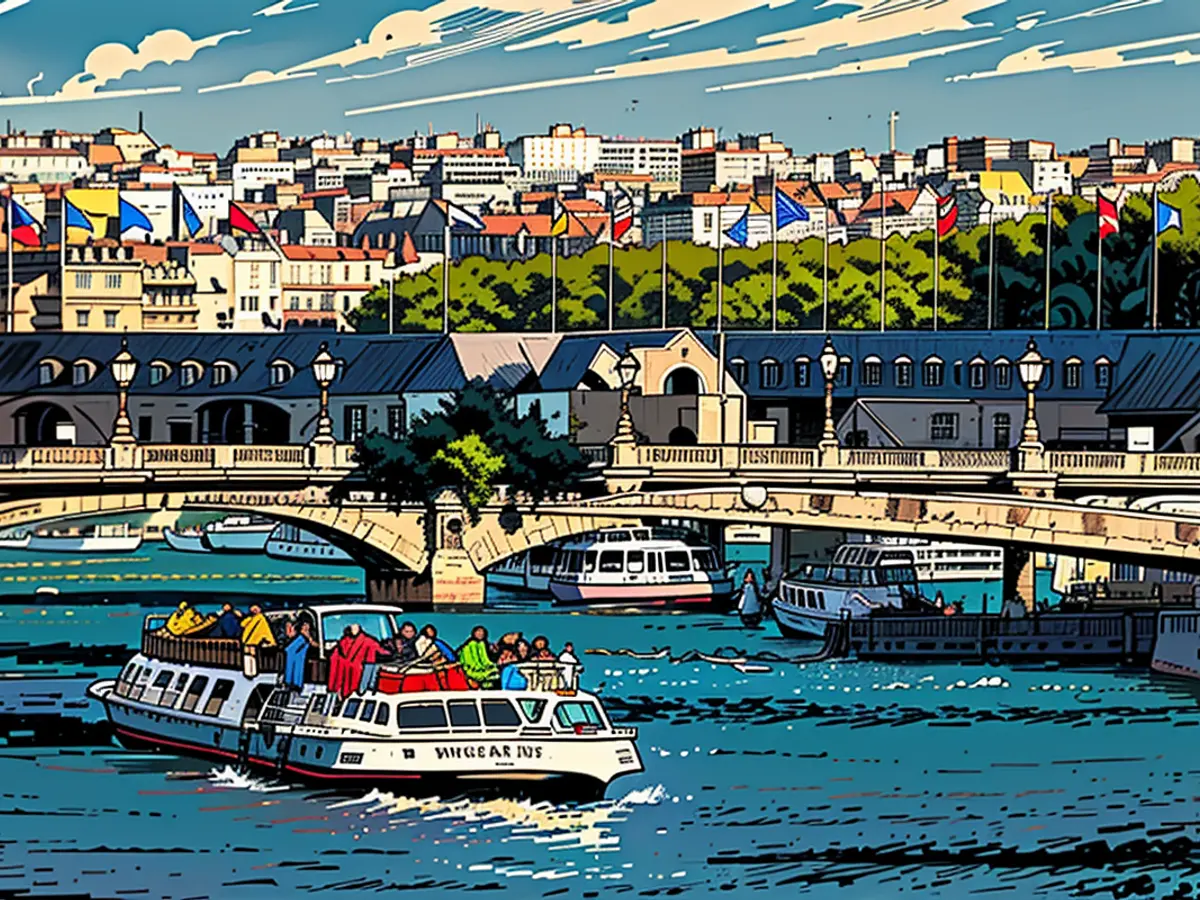The Seine poses a significant challenge for para-athletes
The Seine is making headlines during the Olympic Games, with IOC President Bach commending its stunning visuals. However, athletic competitors are voicing concerns about the water's quality. As the Paralympics commence, the river's current also gains notice.
Bach lavished praise on the "Seine-rific" Paris Olympic Games, but the organizing committee struggled with issues related to the Seine, a costly showpiece worth billions of dollars. Throughout the Paralympics, scheduled to begin on Wednesday, triathletes must again face the dirty water. German para-triathlete Martin Schulz criticized the water's quality in an interview with SID, calling it "suboptimal." The main issue, he argued, was the current.
Schulz, a strong contender for gold in the triathlon, said that even top-tier swimmers faced challenges during the Olympics, and many para-athletes find it impossible to swim against the current. In the best-case scenario, they remain stationary. "Many will swim backwards," he warned. Emergency measures like rescheduling or swimming only downstream have already been considered.
The most severe scenario would be a duathlon consisting of running, cycling, and more running. "It would leave a sour taste," Schulz stressed. Triathletes compete by excelling in all three sports, and altering the rules would distort the outcome, as if skipping five events in a decathlon. This could lead to a few winners and many losers.
Despite the concerns about fairness, Schulz understood the impulse of organizers to capture stunning images alongside the iconic Eiffel Tower. "It's inspiring, fantastic images for the world. That's what you want," Schulz said. "It's a tough balancing act. With the river, it's always a gamble. With the landmarks, it's distinctive, and you want to maintain it." The triathlon races are scheduled for Sunday and Monday in September.
The Paralympics athletes also face challenges in the dirty water of the Seine, as German para-triathlete Martin Schulz mentioned its suboptimal quality. The current of the Seine poses a significant problem during the Paralympics, potentially causing some athletes to swim backwards.








